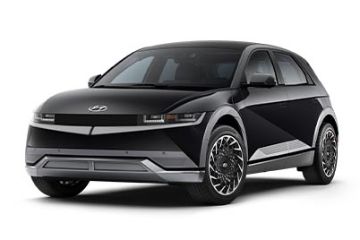![Matching the Chinese, Hyundai to invest RM 127.2 mil in a Thailand plant to manufacture 5,000 EVs annually, Ioniq series models to be CKD 01]()
Hyundai Mobility Thailand (HMT), formerly known as Hyundai Motor Thailand, has just confirmed that it will be investing over 1 billion Baht (~RM 127.2 million) to build a new plant to locally produce electric vehicles there.
The plant will be operated with an unnamed local partner, which Thai daily The Nation says is Thonburi Automotive Assembly. The plant will have a capacity to produce 5,000 EVs per year, supported by Thailand’s EV.35 incentives.
EV3.5 incentives by Thailand’s Board of Investment
The EV3.5 incentive covers EVs with a battery capacity of more than 10 kWh.
The incentive package offers up to 40% lower import tax, but manufacturers must commit to produce two times as many units by 2026, or three times as many units by 2027.
Excise tax will be reduced to between 8% to 2%. The usual rate is between 20% to 50%, depending on vehicle type and CO2 emission).
The Thailand government will also extend purchase subsidies of up to 100,000 Baht (~RM 12,760) per unit, but subsidies will be cut progressively over a 4-year period.
The specifics of the incentive given will be tied to the car’s selling price, with 2 million Baht (~RM 250,000) being the upper limit, after which eligible incentives are trimmed.
![Matching the Chinese, Hyundai to invest RM 127.2 mil in a Thailand plant to manufacture 5,000 EVs annually, Ioniq series models to be CKD 01]()
Hyundai’s third EV plant in Southeast Asia
The Thai plant will be Hyundai’s third in Southeast Asia to build electric vehicles, after Singapore and Indonesia.
The Thai plant will operate under the Hyundai Mobility Manufacturing Company, a subsidiary of Hyundai Mobility Thailand.
The plant will be built on a 28,500 square meter site, with a built-up area of 17,500 square meters, located in the outskirts of Bangkok.
Production will begin in 2026, in time for Hyundai to fulfil the local production requirements agreed under the EV3.5 incentives package.
Hyundai didn’t say which models will be produced in Thailand, only confirming that the models will be from the company’s Ioniq series.
![Matching the Chinese, Hyundai to invest RM 127.2 mil in a Thailand plant to manufacture 5,000 EVs annually, Ioniq series models to be CKD 02]()
Hyundai currently sells two Ioniq models in Thailand. The Ioniq 5 starts from 1,699,000 Baht. The range topping Ioniq 5 N is also available there, starting from 3,790,000 Baht (~RM 482k),
Meanwhile, the Ioniq 6 starts from 1,899,000 Baht.
Jae Gyou Chung, CEO of Hyundai Mobility Thailand said, “Hyundai Mobility Thailand is dedicated to shaping the future of sustainable mobility through strategic investment and innovation. Our goal is to create a robust EV ecosystem that not only supports the local economy but also contributes to global efforts against climate change. By investing in local manufacturing and infrastructure, we are positioning Thailand as a key player in Southeast Asia’s electric vehicle industry, advancing progress, enhancing customer experiences, and leading the shift to a greener, more sustainable future.”
Earlier in July, BYD opened its first plant in Thailand, located in Rayong. It has a 150,000 units per year capacity but now, it only builds the BYD Dolphin.
BYD didn’t say the value of the investment into the plant, but the company has previously submitted to proposal for 9 projects to Thailand Board of Investment (BoI), to apply for investment privileges. The proposed projects have a combined investment value of over 35 billion baht (~RM 4.5 billion).










